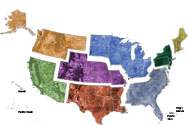
Project Summary
The National Library of Medicine (NLM) and the American College of Physicians (ACP) Foundation jointly piloted the Information Rx project to provide information and tools to assist physicians in referring their patients to an authoritative user-friendly and commercial-free Internet site, MedlinePlus, for patient oriented information.This program is designed to foster partnerships with libraries, consumer groups, and voluntary agencies to promote the awareness of MedlinePlus as well as local health information resources.
We want MedlinePlus to be: THE WEBSITE YOUR DOCTOR PRESCRIBES. The program is one possible answer to the health literacy challenge that affects nearly half of all American adults who have difficulty understanding and acting on health information. The need is great and the concept is simple; we call it the "Information Prescription Project."
This is a free program offered by NLM to physicians and patients, who are referred by their doctor to the Library's MedlinePlus web site. This valuable consumer health resource contains comprehensive, authoritative, up-to-date information from NIH and other trusted organizations, which NLM carefully reviews for accuracy and reliability. After a physician sees a patient, he or she often prescribes a medication. With Information Rx a physician can now use a second prescription pad to direct the patient to MedlinePlus content that helps explain the patient's condition - in English or Spanish - often with the help of easy-to-understand interactive tutorials.
The objective may be to help a patient prevent a debilitating illness, understand a new diagnosis, become comfortable with a new treatment plan, or simply learn to better manage a chronic condition. Participating physicians tell us an information prescription helps improve patient communication, encourages compliance, and reduces the number of poor quality Internet searches that patients do on their own and bring to a doctor's office. In other words, it can save valuable time, empower patients, and enhance the quality and outcome of an interaction - during an office visit and after a patient returns home. For patients without ready access to a computer and an Internet connection, NLM has the valuable support of the National Network of Libraries of Medicine, which is more than willing to work with local physicians to provide their patients with access to MedlinePlus and any needed instruction.
Background on the Project
The initial pilot studies were conducted in Iowa, Georgia, and Virginia in 2003-2004 and a major goal of the Virginia pilot was to explore the role of libraries in this project. Increasingly, health care consumers are seeking health information on the Internet as a way to enhance their knowledge, and to increase their involvement in their health care decision-making process. According to an article published in JAMA, "commonly cited estimates suggest that more than half and as much as eighty percent of adults with Internet access use it for health care purposes." Yet, there is inadequate control over the accuracy of information that patients may find on the Internet. [Source: Baker L, Wagner TH, Singer S, Bundorf MK. "Use of the Internet and email for health care information: results from a national survey." JAMA. 2003 May 14;289(18):2400-6.] Physicians spend valuable time during the physician-patient interaction explaining why much Internet-researched information is inaccurate or inappropriate. Physicians can help guide their patients to websites that provide current, evidence-based, patient-oriented health information, such as MedlinePlus.
Results from the Pilot Studies
To obtain feedback from physicians, the following evaluation tools were used: pre and post surveys, telephone interviews, and focus groups.
Participating physicians most often cited promoting patient self-sufficiency as the reason they refer patients to the Internet for health information. Other cited reasons for providing an Information Rx included explanations of difficult concepts; procedures and medication; improved communication with patients; increased compliance; the reduction of office time spent on patient education; and the reduction of patient anxiety.
Among the primary reasons why physicians did not refer patients to health information on the internet were:
Lack of patient internet access
Concern that a patient lacked the cognitive/language ability to process the information.
Concern that a patient would find inaccurate information on an unreliable website
Participation in the pilot appears to have reduced concern about the lack of an appropriate website (18% post-pilot versus 55% pre-pilot).
Information Rx Tool Kit
The development of the Information Rx Tool Kit was a collaboration with Virginia health sciences libraries, the National Library of Medicine, the National Network of Libraries of Medicine and other libraries in Iowa and Virginia and is designed to assist libraries with any project-related outreach activities they may wish to initiate. The Tool Kit contains tested materials, outlines, contact information for assistance, and suggestions for a variety of activities associated with the promotion of the Information Rx Project.
National Rollout
The project was launched in April 2004 at the ACP Annual Session. The NLM and the ACP Foundation believe Information Rx is an important initiative that will serve as a valuable tool for physicians and patients throughout the country.



